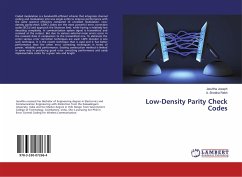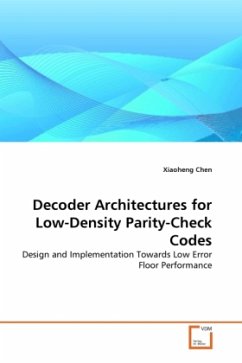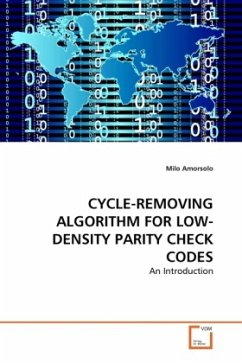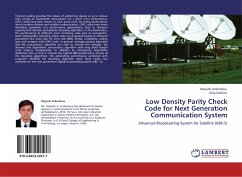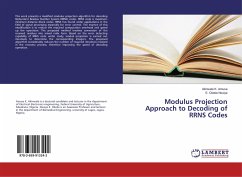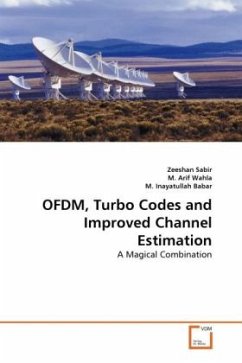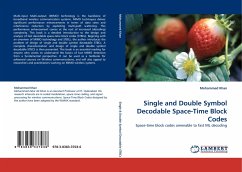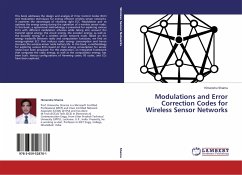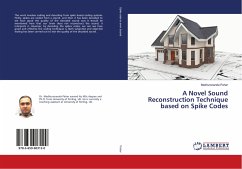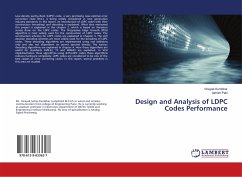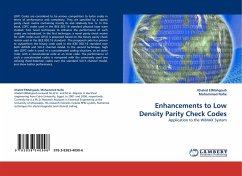
Enhancements to Low Density Parity Check Codes
Application to the WiMAX System
Versandkostenfrei!
Versandfertig in 6-10 Tagen
32,99 €
inkl. MwSt.

PAYBACK Punkte
16 °P sammeln!
LDPC Codes are considered to be serious competitors to turbo codes in terms of performance and complexity. They are specified by a sparse parity check matrix containing mostly 0s and relatively few 1s. In this book, LDPC codes used in the IEEE 802.16 standard physical layer were studied. Two novel techniques to enhance the performance of such codes are introduced. In the first technique, a novel parity check matrix for LDPC codes over GF(4) is proposed based on the binary parity check matrix used in the IEEE 802.16 standard . The proposed code has proven to outperform the binary code used in t...
LDPC Codes are considered to be serious competitors to turbo codes in terms of performance and complexity. They are specified by a sparse parity check matrix containing mostly 0s and relatively few 1s. In this book, LDPC codes used in the IEEE 802.16 standard physical layer were studied. Two novel techniques to enhance the performance of such codes are introduced. In the first technique, a novel parity check matrix for LDPC codes over GF(4) is proposed based on the binary parity check matrix used in the IEEE 802.16 standard . The proposed code has proven to outperform the binary code used in the IEEE 802.16 standard over both AWGN and SUI-3 channel model. In the second technique, high rate LDPC code is used, in a concatenated coding structure, as an outer code, with a convolutional code as an inner code. The performance of such a concatenated codes is compared with the commonly used one utilizing Reed-Solomon codes over the standard SUI-3 channel model, and show better performance



